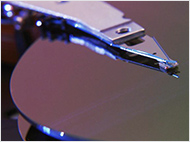Як відновити файли, видалені вірусом
Вірус – це вид шкідливого програмного забезпечення, який впроваджується в системні області пам’яті, код інших програм і завантажувальні сектори. Він здатний видаляти важливі дані з жорсткого диска, USB-накопичувача або карти пам’яті. Більшість користувачів не знають, як відновити файли після вірусної атаки. У цій статті ми хочемо розповісти вам, як позбавитися від вірусу та відновити файли, видалені вірусом. Сподіваємося, що ця інформація буде... Читати статтю
- липень 25, 2017
Magic Partition Recovery FAQ. Як самостійно відновити видалені файли
Magic Partition Recovery це одна з кращих розробок компанії East Imperial Soft, призначена для відновлення даних в середовищі Windows. Ми по праву пишаємося широким спектром можливостей, які надає ця програма. У відділ технічної підтримки щодня надходить безліч питань з приводу цього продукту. І це не дивно. Так як Magic Partition Recovery став безумовним фаворитом серед наших користувачів. У цій статті ми хочемо відповісти на найчастіші і... Читати статтю
- червень 28, 2017
FAT32, exFAT або NTFS? Обери свій власний формат
Файлова система – це спосіб організації даних на різних носіях інформації. Вона визначає де і як на носії будуть записані файли. Крім того, файлова система надає операційній системі доступ до них. Як правильно обрати тип файлової системи при форматуванні USB-накопичувача? Як змінити формат вашого USB-накопичувача з FAT на NTFS, exFAT чи FAT32? У чому різниця між NTFS та exFAT? У цій статті ми хочемо відповісти на запитання стосовно цієї теми... Читати статтю
- червень 1, 2017
Пропонуємо вашій увазі основні причини втрати файлів. Можливо, ця стаття допоможе вам знизити або уникнути ризик втрати важливої для вас інформації. 1. Випадкове видалення файлів Кожен день ми оновлюємо або видаляємо файли без будь-яких резервних копій. Багато людей навіть не сприймають як реальний ризик втрату даних під час повсякденної роботи. Проте, щодня ми випадково видаляємо неправильні файли або перезаписуємо не ті частини. 2. Віруси і... Читати статтю
- травень 25, 2017
Переваги SSD дисків в порівнянні з традиційними накопичувачами на жорстких дисках на перший погляд очевидні. Серед основних: швидкість читання і запису інформації, стійкість до механічних пошкоджень, низьке енергоспоживання. Основні недоліки: висока ціна і невеликий час роботи на відмову. SSD складається з блоку управління і блоку пам’яті (чіп FLASH і чіп DRAM). SSD диск можна широко використовувати як портативний жорсткий диск... Читати статтю
- травень 19, 2017
Відновлення даних з віртуальних машин
Сьогодні віртуальні машини використовуються всюди. У середовищі веб-хостингу вони використовуються в якості захищених контейнерів для обробки даних, що належать клієнтам, які використовують один і той же фізичний сервер. У корпоративних середовищах віртуальні машини використовуються для додаткової безпеки та додаткової зручності при розгортанні, керуванні і резервне копіювання комп’ютерів. Розробники використовують віртуальні машини для... Читати статтю
- квітень 18, 2017







